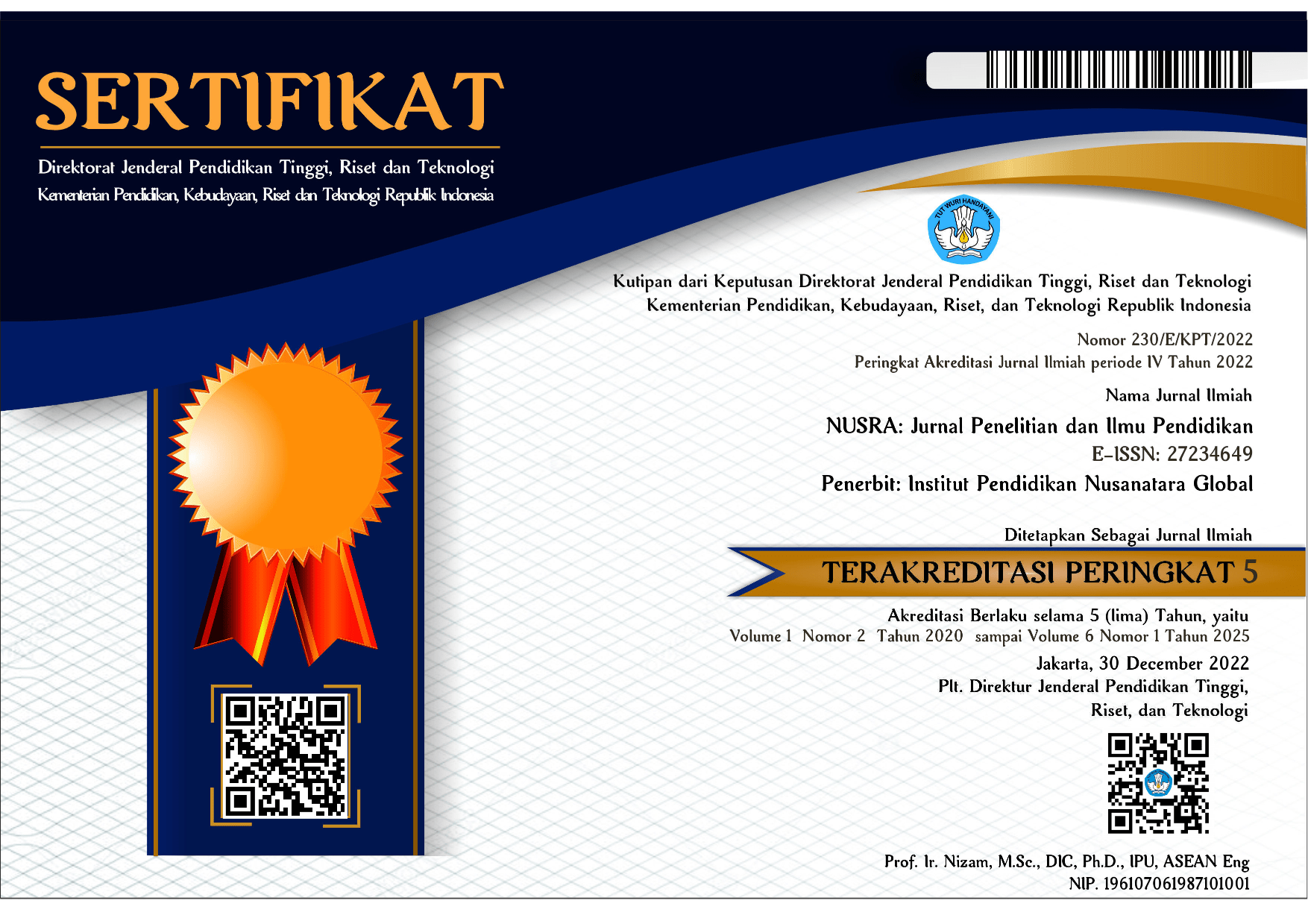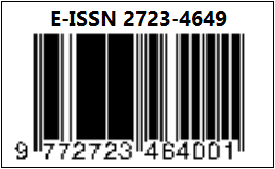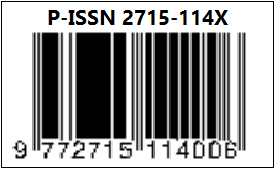Kita Lebih dari Pemenang (Analisa Teks Surat Roma 8:37 dan Aplikasinya Bagi Orang Percaya pada Masa Pandemi Covid-19)
DOI:
https://doi.org/10.55681/nusra.v5i3.3180Keywords:
We, More, Overcomers, Romans 8:37Abstract
This study aims to explain the meaning of the phrase "We are more than victors" in Romans 8:37. The research method used is library research with a text analysis approach. That is, the author collects various references regarding the research topic. Furthermore, the text analysis of the text of Romans 8:37 was carried out using relevant references to the research topic. Based on the analysis of the text of Romans 8:37, this research can conclude that the meaning of "We are more than victors" is because God has loved us. The love of God that was revealed through Christ's death and resurrection can only be received through faith. His victory over sin and death becomes the victory of those who believe in Him and live in His love. So, the phrase "We Are More Than Overcomers" is first of all because believers have faith in God's love. Second, "we are more than conquerors" because believers remain in Christ. This means that the believer continues to live in fellowship with Christ.
Downloads
References
Aland, Kurt. (1984). The Greek New Testament. Stuttgart: United Bible Societies.
Arndt, William F. A. (1952). Greek English Lexicon Of The New Testament. Chicago: Cambridge At The University Press.
Barnes, Albert. Notes On The New Testament. Grand Rapids, Michigan: Baker Book Hoese, “tt”
Berkhof, Louis. (1997). Teologi Sistematika-Diktrin Keselamatan. Jakarta: Lembaga Reformed Injili Indonesia.
Guthrie, Donald. (2001). Teologi Perjanjian Baru 2. Jakarta: BPK Gunung Mulia.
H. E. Dana & J. R. Mantey, A. (1957). Manual Grammar Of The Greek New Testament. Toronto: The Macmillan Company.
Ladd, George E. (1993). Teologi Perjanjian Baru 2. Bandung: Yayasan Kalam Hidup.
Morris, Leon. (1996). Teologi Perjanjian Baru. Malang: Yayasan Gandum Mas.
Perschbacher, Wesley J. (1852). The New Analytical Greek Lexicon. Peabody, Masachusetts: Hendikson Publishers.
Rieneker, Fritz. A. (1980). Linguistik Key To The Greek New Testament vol 2; Romans-Revelation. Grand Rapids, Michigan: Zondervan Publishing House.
Ryrie, Charles C. (1986). Teologi Dasar 2. Yogyakarta: Yayasan ANDI.
Sheed, William G. T. (1980). Tronaple Commentaries, Commentary On Rommans. Grand Rapids, Michigan: Baker Book House Company.
Sproul, R. C. (2000). Kebenaran-Kebenaran Dasar Iman Kristen. Malang: Seminari Alkitab Asia Tenggara.
Summers, Ray. Essentials Of New Testament Greek. Nashville, Tennessee: Brodman Press, “tt”
Thiessen, Henry C. (2000). Teologi Sistematika. Malang: Gandum Mas.
Vine, W.E., Vine’s. Expository Dictionary of New Testament Words. Virgina: Mac Donald Publishing Company, “tt”
Webster, Merriam. (1996). Merriam Webster’s Collegiate Dictionary. Massachusetts: Merriam Webster, Incorporated Springfield.
Whitaker, Richard E. (1977). The Eerdmans Analytical Concordance To The Revised Standar Version of The Bible. GrandRapids, Michigan: Wm. B. Eerdmans Publishing Company.
Downloads
Published
How to Cite
Issue
Section
License
Copyright (c) 2024 Jacob Messakh

This work is licensed under a Creative Commons Attribution-ShareAlike 4.0 International License.














